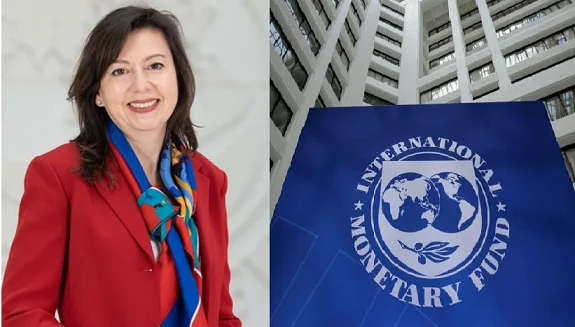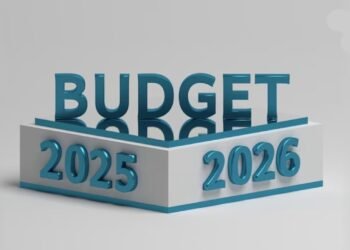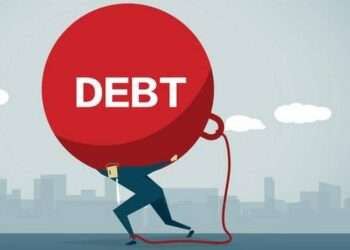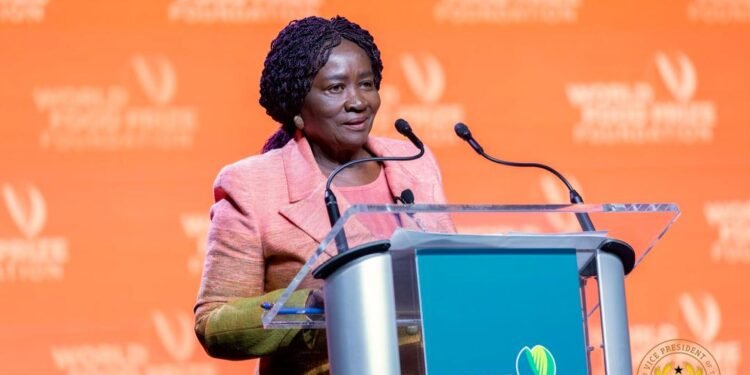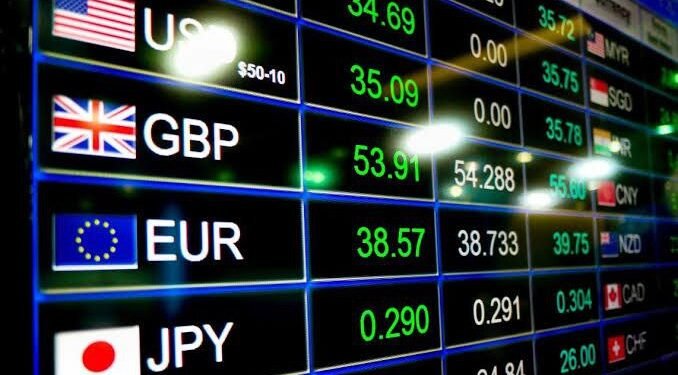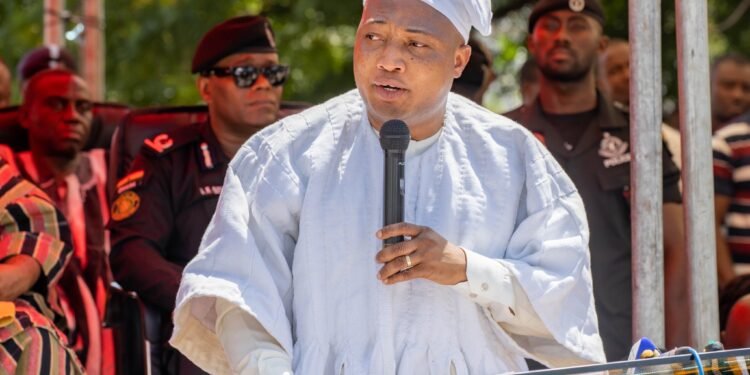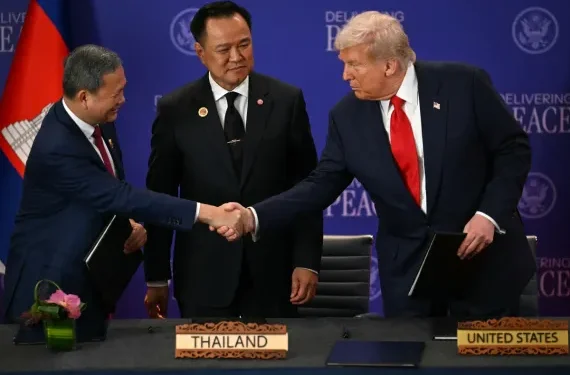Ghana’s economic management has received a major vote of confidence from the International Monetary Fund (IMF), which has praised the country’s fiscal reforms as a solid framework for sustaining discipline beyond the expiration of its current programme in May 2026.
At a press briefing in Washington, D.C., IMF Director of Communications Julie Kozack highlighted the reforms as a turning point for Ghana’s economic future. According to her, these measures were not just stopgap interventions but enduring policies aimed at securing long-term market confidence.
“The Fiscal Responsibility Framework includes a primary balance rule that requires an annual primary fiscal surplus of at least 1.5% of GDP, and it also includes a public debt target of 45% of GDP. This fiscal responsibility framework provides some guidance for policymakers as they seek to entrench fiscal discipline in Ghana.”
Julie Kozack
Her remarks signal the IMF’s endorsement of Ghana’s strategy to stabilize its economy and reassure investors and international partners.
A Revamped Fiscal Responsibility Framework
The IMF believes Ghana’s new fiscal rules are explicit, binding, and crafted to limit fiscal slippages that have often plagued the country’s past economic performance. A major highlight of the reforms is the revamped Fiscal Responsibility Framework, which sets strict conditions on government spending and borrowing.
One of its key provisions is the requirement that Ghana maintain a primary fiscal surplus of 1.5% of GDP each year. This rule is designed to ensure that the government spends within its means while generating a buffer to reduce debt. Coupled with the 45% of GDP public debt target, the framework places a hard ceiling on fiscal excesses that could undermine stability.
Julie Kozack added that these reforms were part of broader institutional changes.
“A revamped fiscal responsibility framework, the establishment of an independent fiscal council, and improvement in public financial management, which aims at improving and supporting the efficiency of public spending.”
Julie Kozack
Independent Fiscal Oversight
To complement the fiscal rules, Ghana has also introduced an independent fiscal council to provide oversight and enhance transparency in government spending decisions. The IMF emphasized that this institutional safeguard will help enforce discipline and prevent politically motivated overspending.
The council will serve as a watchdog, assessing compliance with fiscal rules, reviewing budgetary assumptions, and providing independent advice on fiscal policy. This is expected to strengthen accountability and build trust among markets, investors, and citizens.
By institutionalizing oversight, Ghana is signaling that fiscal prudence will not end with the IMF programme but will become an enduring part of governance.
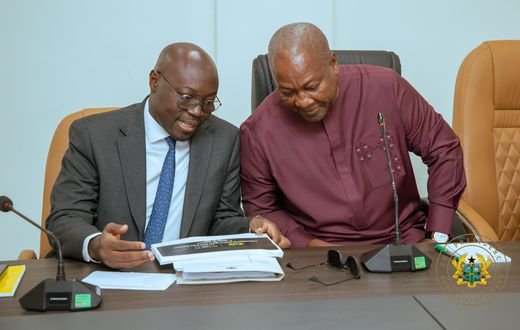
The IMF’s endorsement comes at a time when Ghana is working hard to rebuild investor confidence after years of economic turbulence marked by debt distress, currency depreciation, and inflationary pressures.
Government officials have pledged to uphold the fiscal commitments, underscoring that Ghana’s credibility in global markets depends on sustaining discipline even after IMF support ends. By adhering to binding rules and transparent oversight, Ghana hopes to reassure creditors, donors, and development partners of its determination to stay the course.
The government’s commitment is also key for foreign direct investment and private sector financing, both of which are sensitive to fiscal credibility. With strict rules in place, Ghana is positioning itself as a stable investment destination within Africa.
Fifth Programme Review Underway
Meanwhile, an IMF mission team, led by Ruben Atoyan, has commenced its fifth review of Ghana’s performance under the programme in Accra. The team will spend two weeks engaging with officials from the Ministry of Finance and the Bank of Ghana to assess progress on fiscal targets, debt sustainability, and monetary policy.
The outcome of this review will play a critical role in determining the release of further disbursements under the $3 billion programme. More importantly, it will offer another opportunity for Ghana to showcase the effectiveness of its reforms in addressing fiscal imbalances and laying the groundwork for sustainable growth.
While May 2026 marks the scheduled end of Ghana’s IMF-supported programme, the reforms being implemented suggest that the country is building resilience for the long haul. By setting binding fiscal targets, creating independent oversight, and improving public financial management, Ghana is taking steps to avoid a repeat of past cycles of boom-and-bust.
The IMF’s confidence reflects a broader optimism that Ghana can turn the corner and become a model for fiscal discipline in Africa. If fully implemented, these measures could anchor macroeconomic stability, lower borrowing costs, and unlock opportunities for sustained development.
However, much will depend on the political will to enforce the rules, particularly in election years when pressures to increase spending are typically high. The test for Ghana will not only be in designing reforms but in applying them consistently across future administrations.
READ ALSO: Ecobank Ghana Soars 10% as NewGold ETF Stumbles in GSE’s Penultimate Trading Week



